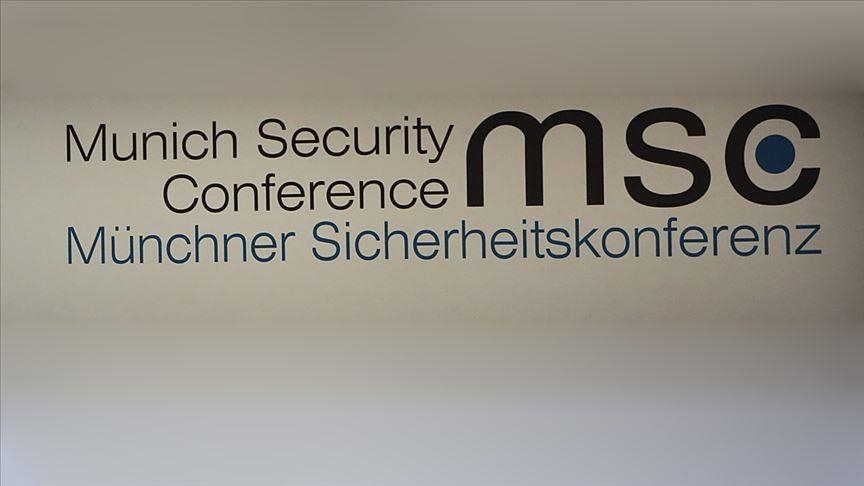Munich Security Conference warns of ‘learned helplessness’ in world politics
A sense of helplessness seems to be mounting in many societies amid growing conflicts, crises, according to MSC’s 2022 report

BERLIN
Munich Security Conference’s annual report has warned of a mounting feeling of “helplessness” in many societies amid a growing number of crises and conflicts around the world.
“Sensing that they have no control over global events, many people seem to conclude that it will not be possible to solve humanity’s most challenging problems,” the report said.
“This poses the risk that, even though there are resources, strategies, and instruments available to address the key challenges facing humanity, the world will not be able to do so.”
The 180-page report titled “Turning the Tide – Unlearning Helplessness,” was released on Monday, ahead of this week’s Munich Security Conference (MSC), which will bring together more than 35 heads of government, around 100 foreign, and defense ministers.
MSC’s chairman Wolfgang Ischinger said “collective helplessness” and how the international community can overcome this problem will be one of the key themes to be discussed by political and military leaders at the conference on Feb. 18-20.
According to the report, many people in the wealthy G7 nations and major emerging economies (BRICS) increasingly feel that countries are losing control over global crises, and nothing they do makes any difference.
The sense of helplessness is highest in India, according to a recent poll, where %69 said they feel helpless in the face of global events.
Some 64% of respondents in Brazil and 63% in South Africa, expressed concern about a growing number of crises and inability to cope with them.
Collective helplessness has also been a widespread perception among the citizens of G7 countries, according to the survey.
Around 61% of respondents in Italy, 59% in France, and 51% in Canada said people are unable to get a grip on the global challenges.
“Whether it is the seemingly endless pandemic, the increasingly tangible threat of climate change, the vexing vulnerabilities of an interconnected world, or increasing geopolitical tensions, all these challenges contribute to a feeling of a loss of control,” the report said.
According to Tobias Bunde, the director of Research and Policy of the MSC, liberal democracies are particularly overwhelmed and helpless in the face of a plethora of crises.
“In the eyes of many, politicians seem far from getting a grip on these challenges and steering the world away from catastrophe. What is more, the seemingly endless series of crises threatens to eat away at the public’s confidence that they and their political leaders can shape their future,” he said.
The report underlined that to “unlearn” helplessness, people need renewed confidence in their own and their government’s ability to act.
“While still being the world’s best hope, liberal democracies, and the transatlantic partners in particular, need to prove that they have the right answers to today’s challenges. Understood as a wake-up call, systemic competition can be a catalyst for reform and innovation, providing us with a chance to turn the tide,” it concluded.
Anadolu Agency website contains only a portion of the news stories offered to subscribers in the AA News Broadcasting System (HAS), and in summarized form. Please contact us for subscription options.

